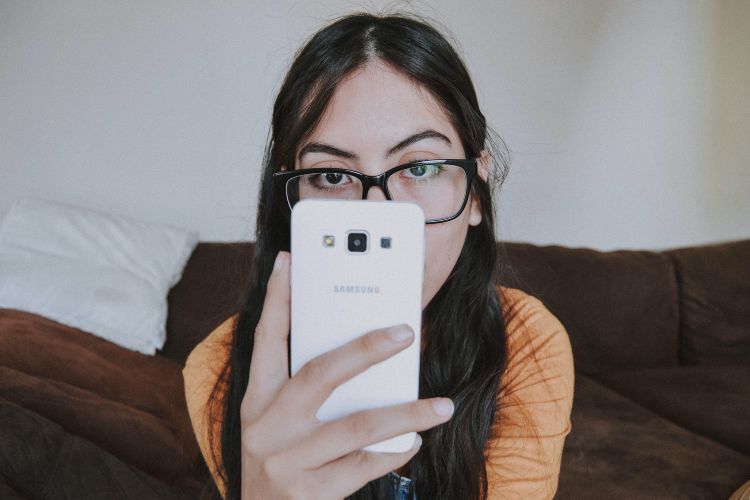It’s no doubt that the recent pandemic has been hard on everyone, and teens are no exception to that.
For those who are taking courses online, it can be hard to adjust to the new online methods or find the motivation to perform well. And for those in the classroom, taking extra safety precautions and being around others after a long period of staying at home can bring up feelings of anxiousness and stress.
During the pandemic, high school students aren’t able to go to the events most teens look forward to, such as sporting events, prom, and walking at graduation.
Add to that the typical teenage hormone shifts, the constant closeness with family, and the absence of seeing friends and developing independence, and it’s easy to see why so many are struggling mentally and emotionally during this time.
A favorite outlet for teens (and most adults) is their phones—and fortunately, there are plenty of accessible mental health apps available on iOS and Android that can help during these troubling times.
What sort of mental health problems are teenagers facing during the pandemic?
Developmentally, teen years are a time of hormonal changes, chemical imbalances, and (potentially) mental, attention, behavioral disorders.
Regardless of the pandemic, these include:
- Anxiety, including social anxiety and panic disorder
- Depression or major depressive disorder
- ADD or ADHD
- Behavioral disorders, including oppositional defiant disorder and conduct disorder
- Personality disorders, including antisocial and borderline personality disorders
- Eating disorders, including anorexia nervosa and bulimia nervosa
- Obsessive-compulsive disorder (OCD)
- Bipolar disorder
- Schizophrenia
- Addiction
- Post-traumatic stress disorder (PTSD)
While the list above has always been a concern for teens, some conditions are more prevalent due to dealing with the pandemic.
According to Dr. Strelitz, a pediatrician at Bayside Medical Group – Pinole, “Anxiety and depression in teenagers has been a huge problem, even prior to the pandemic, and is getting worse.”
While it may be more challenging to manage these issues and disorders during COVID, there are ways for teens to cope from the comfort of their own homes.
How can teens cope with mental health issues at home?
Thanks to today’s technology and a generally more-open conversation about mental health care, there is a multitude of ways to help manage problems like stress levels, anxiety and depression:
- Talk to a friend or family member: One of the problems that the pandemic has presented is a lack of social interaction and physical touch. Openly communicating with a friend or family member can alleviate this stress. Playing or cuddling with the family pet is also a great way to relieve stress!
- Get some fresh air: While it’s important to stay safe during the pandemic, it’s still possible to safely enjoy the great outdoors. Teens can go for a walk or a run, or simply try finding a nice sunny spot to relax in. Getting more exercise improves mental conditions, and higher vitamin D levels help build a stronger immune system!
- Explore a new interest: The internet is a treasure trove of information on learning new hobbies—from DIY trends on TikTok to music tutorials on YouTube. Finding ways for teens to express themselves creatively is a great outlet for managing mental and emotional health.
- Try mindfulness exercises: Meditation is one of the best ways to cope with feelings of stress and anxiety. Other exercises to try besides meditation is yoga and breathwork.
Note: These exercises do not replace regular therapy or psychiatric sessions. If you have a mental or emotional health concern, reach out to a professional immediately.
While all of the above are fantastic options for everyone, some teens may require techniques that are specifically designed for bettering their mental health. Thankfully, there are lots of apps that can help with this.
The best mental health apps for teens
There is a wide variety of easily-accessible apps that can help teens improve their mental health by performing helpful exercises, learning to manage and cope with certain feelings and behaviors, and giving them an outlet to speak with an expert.
Here are some of our favorites:
Mindfulness and Meditation:
- Calm: Best for visualizing and looking inward
- Headspace: Best for learning lifelong mindfulness skills
- Aura: Best for personalized tracks and coaches
- Simple Habit: Best for teens with busy schedules
- Insight Timer: Best for free guided meditations and talks from celebrities and gurus around the world
Behavioral and Habit Aids:
- MindDoc: Best for teens who struggle with or want more insight into their mental wellbeing
- Pacifica: Best for breaking the vicious cycle of negative thoughts
- Calm Harm: Best for teens who struggle with self-harm
- My3: Best for teens with suicidal thoughts who could benefit from a support network
- MoodPath: Best for teens who need help detecting symptoms of depression
App-Based Therapy:
Note: These apps may require health insurance and parent/guardian permission.
- TalkSpace: Best overall
- TeenCounseling: Best for teen-specific counseling
- BetterHelp: Best for livechat sessions
- Larkr: Best for video sessions
- Pride Counseling: Best for LGBTQ
If you or a loved one are showing signs of struggling with mental health, reach out to a professional at D’Amore for help. We offer innovative treatments and a safe space for those who struggle with a variety of mental disorders and illnesses. Call us today to see how we can help!





































